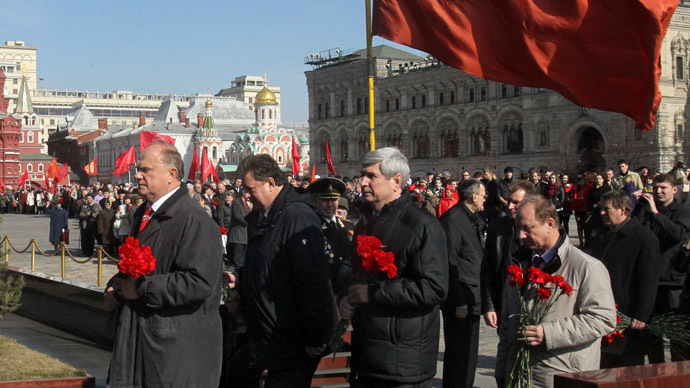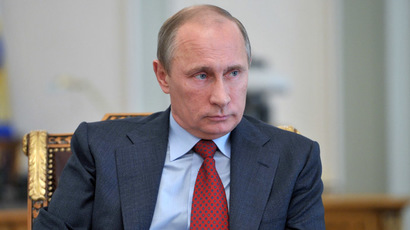Communists want to cut out middle-men in political sponsorship - report

Russia’s Communists are suggesting legal amendments that would only allow direct and transparent sponsorship of political parties in order to prevent the already-outlawed interference by foreign persons and organizations.
The head of the Communist Party’s legal service, Vadim Solovyov, has told the mass circulation daily Izvestia that the main objective of the move was to ban political party financing through NGOs, and above all through so-called support funds. He said that his party would prepare the necessary documents and submit them to the State Duma before the end of the year.
Earlier this year, the Communists attempted to sue the parliamentary majority party – centrist conservatives United Russia - over alleged foreign sponsorship, which is illegal. The Communists asked the Federal Tax Service, Prosecutor General’s Office and the Central Elections Committee to check several major companies that had donated money to United Russia, as they suspected that these companies were owned by offshores entities and foreign corporations. The officials made a check into these claims and reported that no violations were found.
However, according to the Elections Committee which has handled the probe, one company – energy retailer YaSK – transferred 55 million rubles (over US$1.6 million) to the United Russia Public Support Fund – which did not transfer the money further to the party.
In his interview with Izvestia, Solovyov called such results “cheaply casuistic” and said his party would press to changes in the law that would not allow any ambiguous situations.
In addition, the MPs noted that new amendments would oblige all sponsors of political parties to officially disclose the end recipients of donations, claiming that this measure would completely exclude the possibility of foreign sponsorship.
However, the chief of the Constitutional Law committee within the Duma, MP Nikolai Pligin (United Russia) noted that the existing laws allow for the full control of political parties’ cash flows and there was no need to ban an intermediary company if it operates according to the law. At the same time, he agreed that the demand to disclose the end recipients of political donations was reasonable.
A member of the Human Rights Council with the Russian president,
Igor Borisov, has said that although the problem existed it was
quite difficult to solve quickly, due to the abundance and
complexity of the modern financial schemes.














